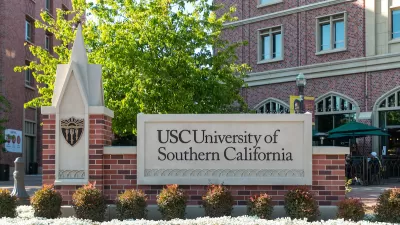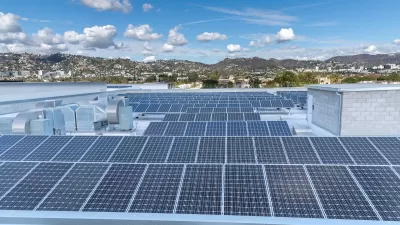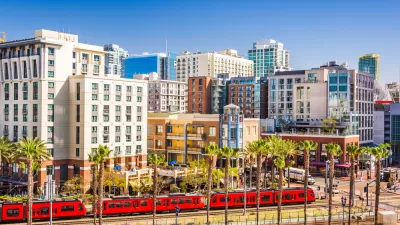Renewable energy enjoys broad public support—the utility industry is more skeptical.

Cities, counties, states, and large corporations are pledging, and in some cases already achieving, 100 percent renewable energy. New market research show that renewable energy is a "public relations juggernaut."
"The rapid spread and evident popularity of the 100 percent [renewable energy] target has created an alarming situation for power utilities," according to an article by David Roberts. "Suffice to say, while there are some visionary utilities in the country, as an industry, they tend to be extremely small-c conservative."
With so many customers demanding to transition to 100 percent renewable energy, Roberts says utilities have reasons for resisting change. "For one thing, most of them don’t believe the technology exists to make 100 percent work reliably; they believe that even with lots of storage, variable renewables will need to be balanced out by 'dispatchable' power plants like natural gas. For another thing, getting to 100 percent quickly would mean lots of 'stranded assets,' i.e., shutting down profitable fossil fuel power plants."
Roberts breaks down the recent market research that shows overwhelming support for renewables from the public, despite the concerns of utilities. A shockingly unified "messaging landscape" emerges, especially considering how many political and media figures still deny that humans cause climate change.
FULL STORY: Utilities have a problem: the public wants 100% renewable energy, and quick

Alabama: Trump Terminates Settlements for Black Communities Harmed By Raw Sewage
Trump deemed the landmark civil rights agreement “illegal DEI and environmental justice policy.”

Planetizen Federal Action Tracker
A weekly monitor of how Trump’s orders and actions are impacting planners and planning in America.

Why Should We Subsidize Public Transportation?
Many public transit agencies face financial stress due to rising costs, declining fare revenue, and declining subsidies. Transit advocates must provide a strong business case for increasing public transit funding.

Understanding Road Diets
An explainer from Momentum highlights the advantages of reducing vehicle lanes in favor of more bike, transit, and pedestrian infrastructure.

New California Law Regulates Warehouse Pollution
A new law tightens building and emissions regulations for large distribution warehouses to mitigate air pollution and traffic in surrounding communities.

Phoenix Announces Opening Date for Light Rail Extension
The South Central extension will connect South Phoenix to downtown and other major hubs starting on June 7.
Urban Design for Planners 1: Software Tools
This six-course series explores essential urban design concepts using open source software and equips planners with the tools they need to participate fully in the urban design process.
Planning for Universal Design
Learn the tools for implementing Universal Design in planning regulations.
Caltrans
Smith Gee Studio
Institute for Housing and Urban Development Studies (IHS)
City of Grandview
Harvard GSD Executive Education
Toledo-Lucas County Plan Commissions
Salt Lake City
NYU Wagner Graduate School of Public Service





























